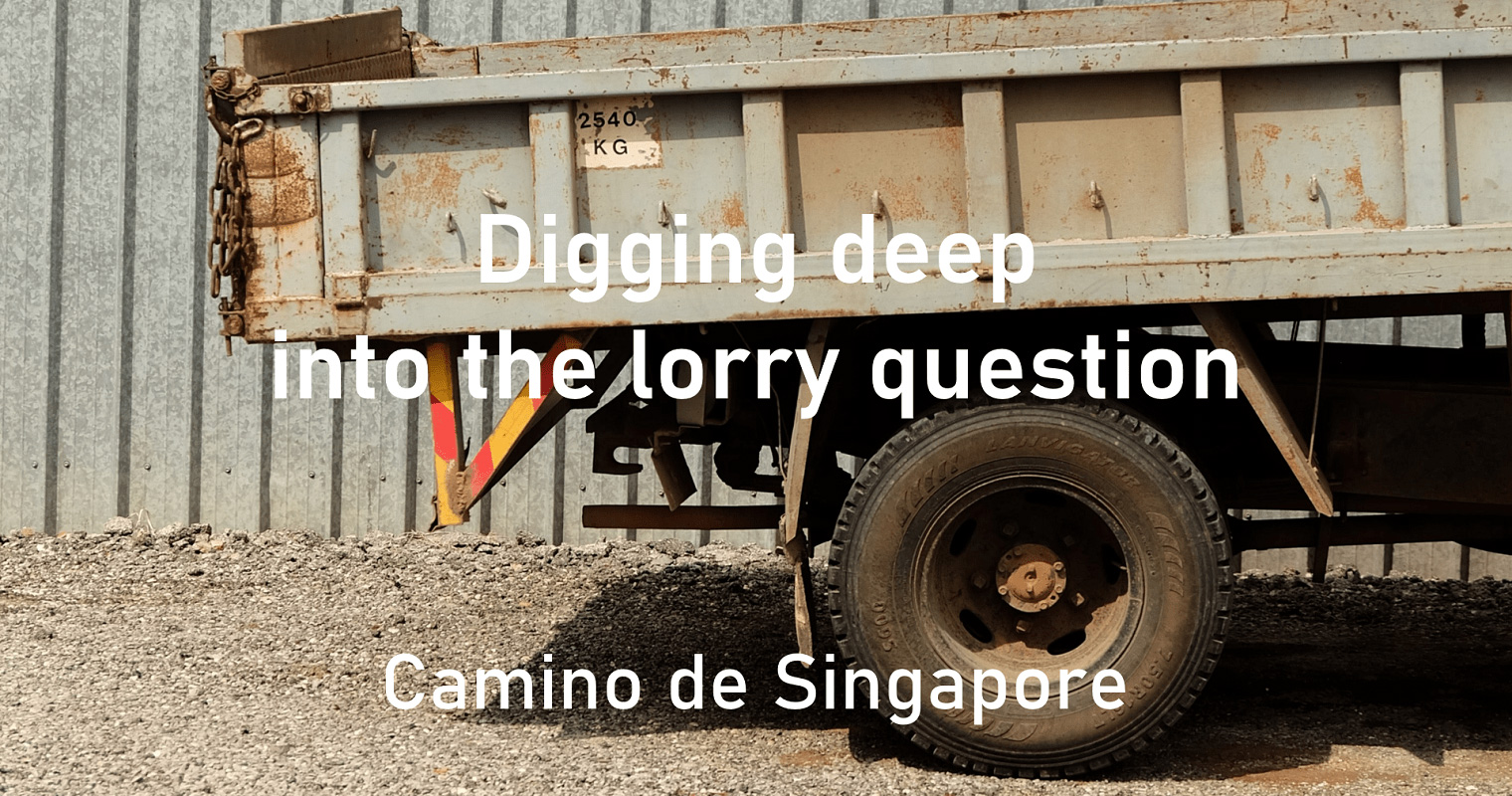No products in the cart.

Photo by https://unsplash.com/@freakart
Recently, there was a lively discourse on transporting people, especially migrant workers, on a lorry. An accident that sent 26 people to hospital on 18 July first triggered a call (again) by advocacy groups to ban this practice. The government gave a nuanced response. Around the same time, business associations also issued a statement. But in this case, swift and furious comments from various individuals, including Professor Tommy Koh, were levelled at the joint statement. Presumably due to its controversial nature, a business association avoided questions by journalists on why it signed the joint statement. What can we say about this as Catholics?
Ferrying workers on lorries is an attractive option for employers for an obvious reason. Since lorries are needed for transportation of large goods anyway, there is no additional cost to incur when transferring workers to worksite aside from fuel. Moreover, the back of a lorry can carry a lot of people. However, a lorry is designed to move things and not people. As such, there is little safety mechanism available in such a vehicle.
Ceasing the practice for safety reasons might seem straightforward. For small businesses, doing so might be simple. However, it is a different story for companies who employ a large number of migrant workers for work such as construction. This is why the concern raised by the government and business groups revolves around cost. For many people, however, weighing between risk to human life and cost is outrageous. Moreover, since most manual labourers that need to be transported in large numbers are foreigners, this practice makes it seem that there are different safety standards for low-income migrant workers.
To be clear, Catholic social teachings are unambiguous on this issue. Work is for the development and fulfilment of the worker and not the other way around. A practice that risks a worker’s life violates the dignity of the worker. The Church is also very clear that migrant workers should not be placed at a disadvantage compared to others.
Despite these differences, it should be noted that the Church, advocacy groups, the government and business associations all agree that safe conditions for migrant workers are important. Why then is the practice still common? The Church endorses the See-Judge-Act method that can be helpful here. The method recommends that before we judge the situation in light of faith and decide on steps to take, we must review the situation and look for underlying issues.
If we consider it carefully, the cost issue is not a simple matter of balancing risk to human life against profit. If there are indeed significant costs, companies operating in sectors with thin profit margin such as construction might pass the cost to customers or decide to quit an unsustainable business. Either way, this would drive up cost on critical projects such as housing and this could be detrimental for low-income and middle-income families at a time when cost of living is already quite high. It might not be the case, but it is certainly possible.
If we dig even deeper, it seems that the lorry debate is just part of a wider issue. While we can rightly be proud at the high rate of housing ownership in Singapore compared to other countries and our efficient transportation system, it does look like all these are possible because our society has been depending on low-income migrants working in low-cost environments. Could we have achieved these accomplishments otherwise?
This is not to say that we should do nothing. Our faith that preaches love of neighbour demands a response. But while we should seek creative solutions that can get the best of both worlds, we need to know the possible costs demanded of us. We need to be understanding if certain policies that benefit the vulnerable might mean higher cost for us and the majority of the population.
During Budget 2017 debate, NMP Kuik Shiao-Yin used the allegory of the “child in the basement” taken from Ursula Le Guin’s book to make this poignant point. This, for some reason, reminds me of this parable.
Which one of you, having a hundred sheep and losing one of them, does not leave the ninety-nine in the wilderness and go after the one that is lost until he finds it? And when he has found it, he lays it on his shoulders and rejoices. And when he comes home, he calls together his friends and neighbours, saying to them, “Rejoice with me, for I have found my lost sheep.” (Luke 15:4-6)
Related News
- 26 taken to hospital after three-lorry pile-up on Kranji Expressway (18 July 2023, The Straits Times)
- Migrant worker groups urge Government for timeline to stop transporting workers in lorries (24 July 2023, The Straits Times)
- Singapore business groups warn of 'complexities', more traffic jams if firms banned from ferrying workers on back of lorries (1 August 2023, Channel NewsAsia)
- Not ideal for workers to be transported on lorries, but there are concerns ban will have knock-on effects: Govt (3 August 2023, The Straits Times)
- Trade groups criticised by netizens for defending practice of ferrying workers on lorries (3 August 2023, Channel NewsAsia)
- Speak plainly and from the heart to connect with people: NMP Kuik Shiao-Yin (25 June 2018, TODAY)
Erwin Susanto is a staff member of Caritas Singapore. He enjoys arcane discourses on Old Testament/Hebrew Bible in the context of the Ancient Near East. He also enjoys thinking about all kinds of contemporary issues and sometimes wonders if punditry is fun.
